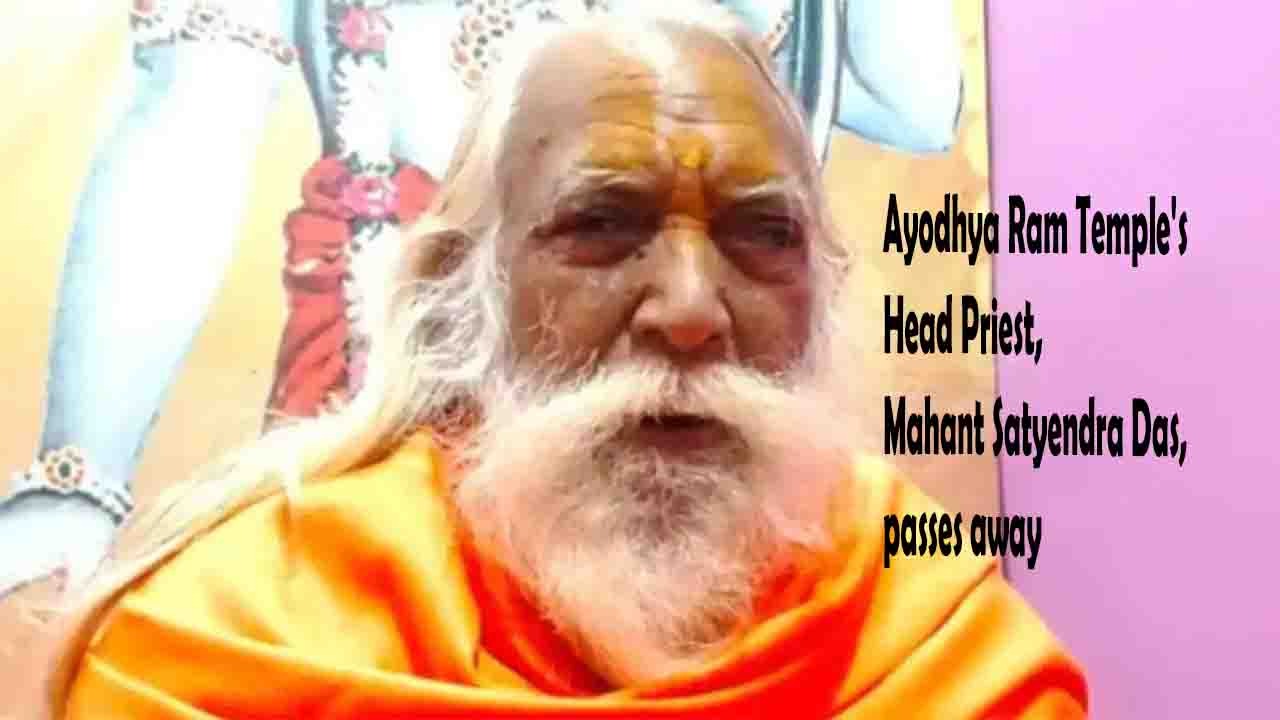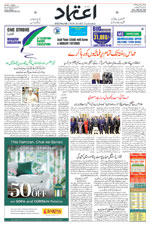Trump Says his Summit with North Korean Leader May Be Delayed
Wed 23 May 2018, 13:51:28
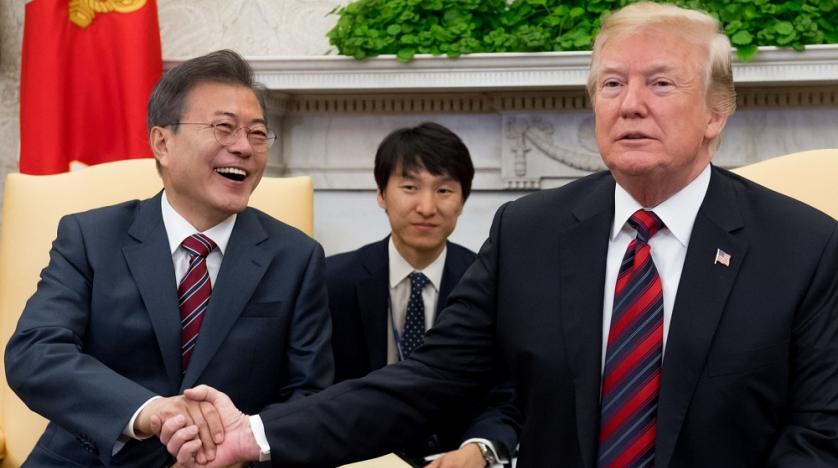
US President Donald Trump announced on Tuesday that his much anticipated summit with North Korean leader Kim Jong Un may be delayed.
He made his remarks while receiving at the White House South Korean President Moon Jae In.
"It may not work out for June 12," Trump said of the Singapore meeting, adding in a now familiar non-committal riff: "if it does not happen, maybe it will happen later."
"There are certain conditions we want to happen. I think we'll get those conditions. And if we don't, we won't have the meeting," he said.
Politically, Trump has invested heavily in the success of the meeting, so most US officials, as well as outside observers, privately expect it will go ahead.
But as the date draws near, Trump's divergence from his top aides, the differences between the two sides and the astronomically high stakes are coming into sharp relief.
Success could lead to peace on the Korean peninsula and end the threat of a nuclear conflagration. Failure could all but destroy hopes of a peaceful solution to the crisis.
"You never know about deals," Trump said. "I've made a lot of deals. You never really know."
Trump expressed suspicion that the North's recent aggressive barbs were influenced by Kim's unannounced trip to China two weeks ago — his second in as many months.
Trump said he noticed "a little change" in Kim's attitude after the trip.
"I don't like that," he said.
The president added that he hoped Chinese President Xi Jinping was actually committed to the goal of denuclearizing the Korean peninsula, calling him a "world-class poker player."
Trump said he was displeased by China's softening of border enforcement measures against North Korea.
North Korea's willingness to denuclearize -- the very basis for the talks -- was recently plunged into doubt when the government denounced US demands for "unilateral nuclear abandonment."
Pyongyang also canceled at the last minute a high-level meeting with the South in protest over
joint military drills between Seoul and Washington.
joint military drills between Seoul and Washington.
Despite the North's move, Trump said he believes Kim is willing to give up nukes. "I do think he is serious. I think he is absolutely very serious," the US president said.
Trump encouraged Kim to focus on the opportunities offered by the meeting and to make a deal to abandon his nuclear program, pledging not only to guarantee Kim's personal security but also predicting an economic revitalization for the North.
"I will guarantee his safety, yes," Trump said, noting that promise was conditioned on an agreement to complete, verifiable and irreversible denuclearization. Trump said if such an agreement is reached, China, Japan and South Korea would invest large sums to "make North Korea great."
Moon's trip to the White House represented an effort to salvage the rare diplomatic opening.
The dovish Moon deployed a tactic frequently used by foreign leaders who meet this most mercurial of presidents: flattery.
"Thanks to your vision of achieving peace through strength as well as your strong leadership," Moon said in the Oval Office, "we find ourselves standing one step closer to the dream of achieving denuclearization on the Korean peninsula."
"All this was possible because of you, Mr. President," Moon added, taking pains to stress the concrete results of diplomacy so far -- most notably the release of three US prisoners from North Korean jail.
"The fate and the future of the Korean Peninsula hinge" on the meeting, Moon added
"I have no doubt that you will be able to ... accomplish a historic feat that no one had been able to achieve in the decades past.”
South Korea -- deeply worried about Kim's bellicose weapons testing and Trump's similarly aggressive warnings about "fire and fury" -- was instrumental in convincing the two Cold War foes to sit down and talk.
Moon sent his own national security advisor to the White House in March, carrying an offer of talks and word that North Korea may be willing to abandon nuclear weapons, an enticing prospect.
No Comments For This Post, Be first to write a Comment.
Most viewed from International
Most viewed from World
AIMIM News
Delhi Assembly polls: Owaisi leads Padyatra in Okhla
Feb 01, 2025
We reject this Waqf Amendment Bill: Asaduddin Owaisi
Jan 30, 2025
Latest Urdu News
Most Viewed
May 26, 2020
Which team will win the ICC Men's Champions Trophy 2025 held in Pakistan/Dubai?
Latest Videos View All
Like Us
Home
About Us
Advertise With Us
All Polls
Epaper Archives
Privacy Policy
Contact Us
Download Etemaad App
© 2025 Etemaad Daily News, All Rights Reserved.

.jpg)
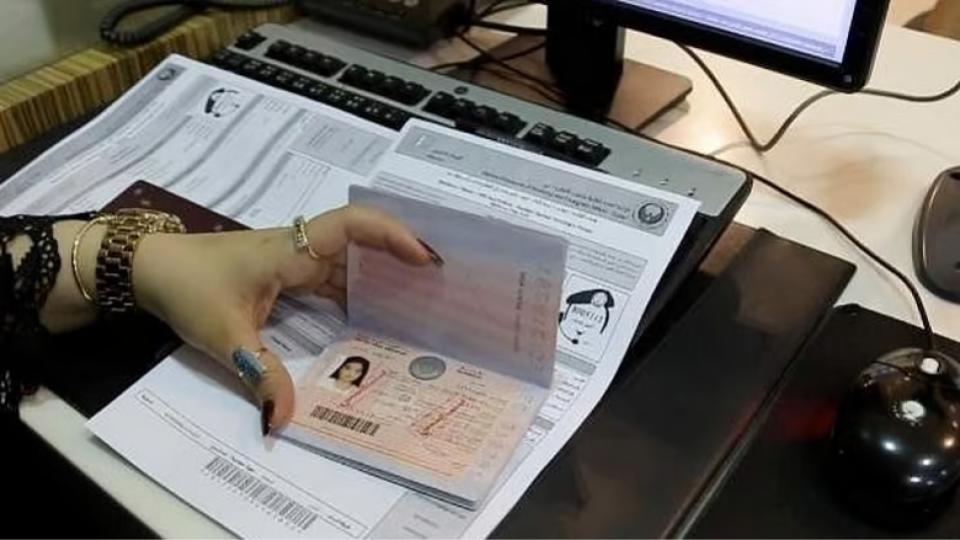
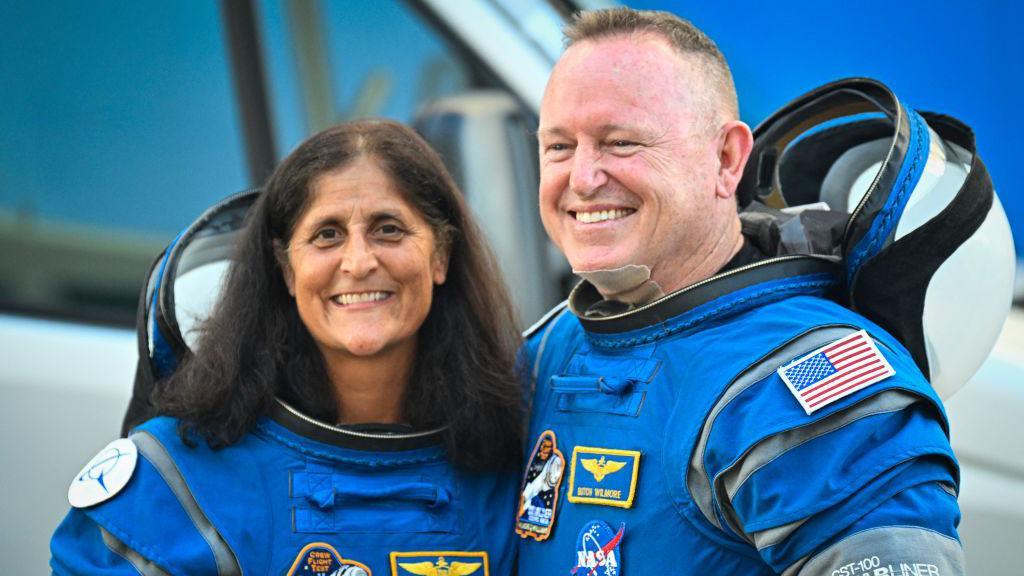
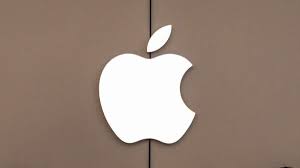
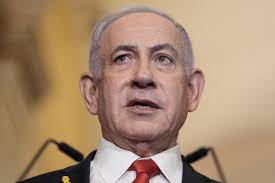

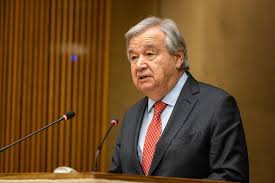
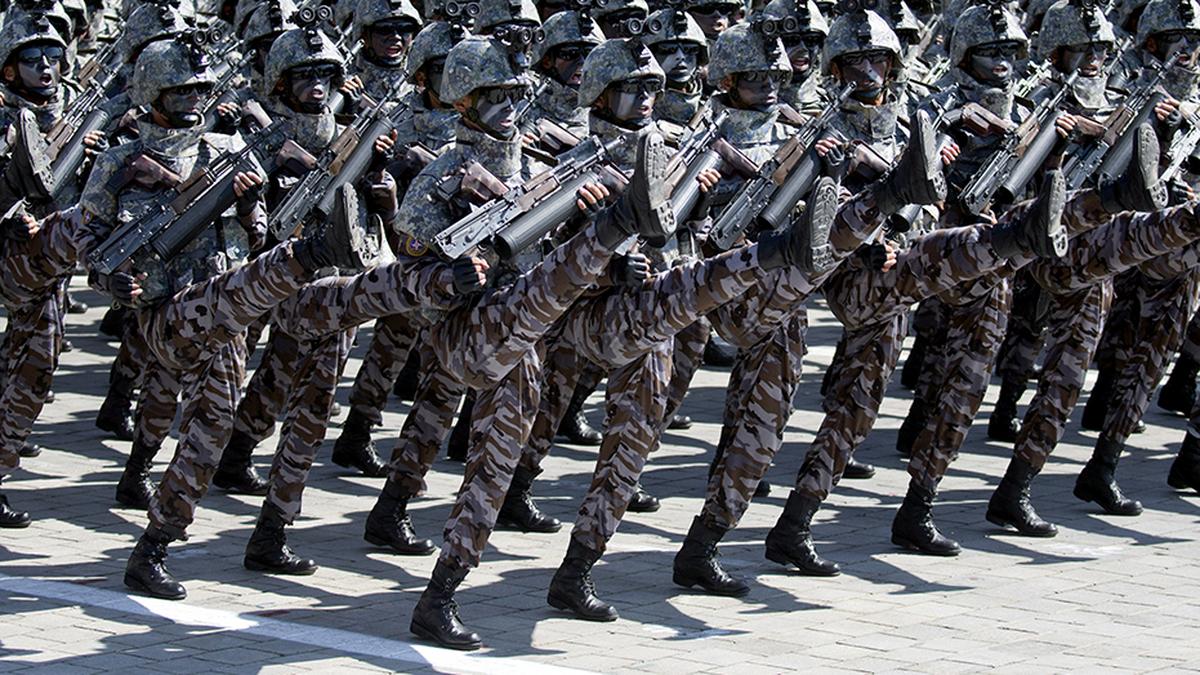
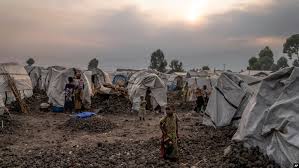
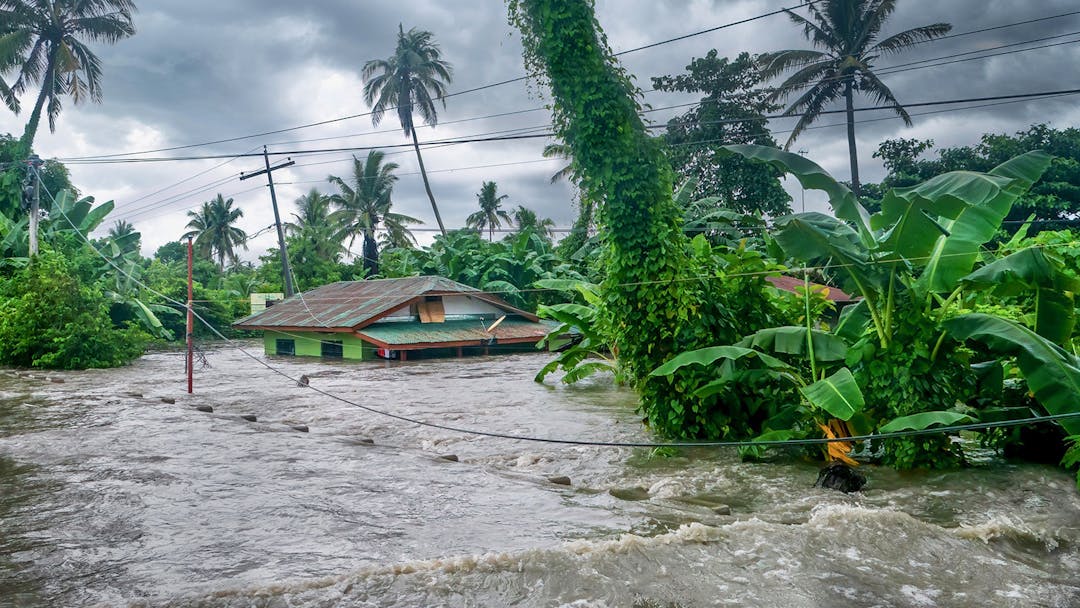
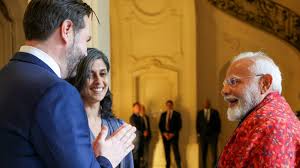
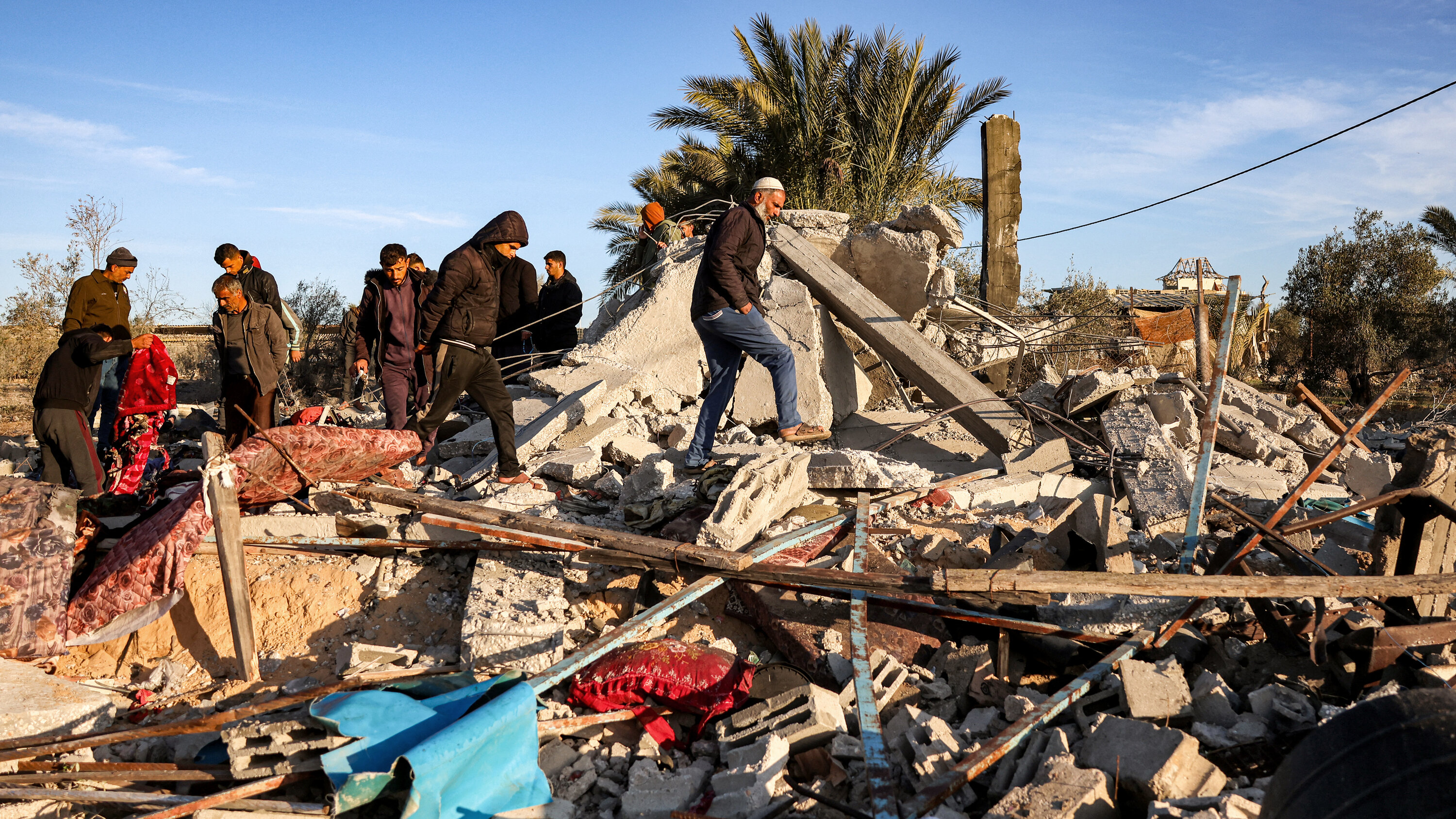
.jpg)
.jpg)
.jpg)
.jpg)
.jpg)
.jpg)
.jpg)
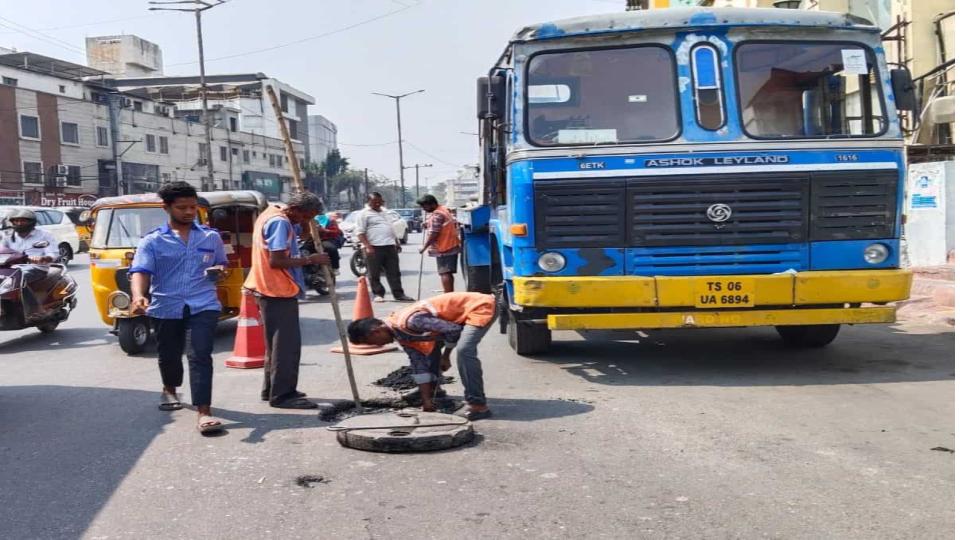
.jpg)

